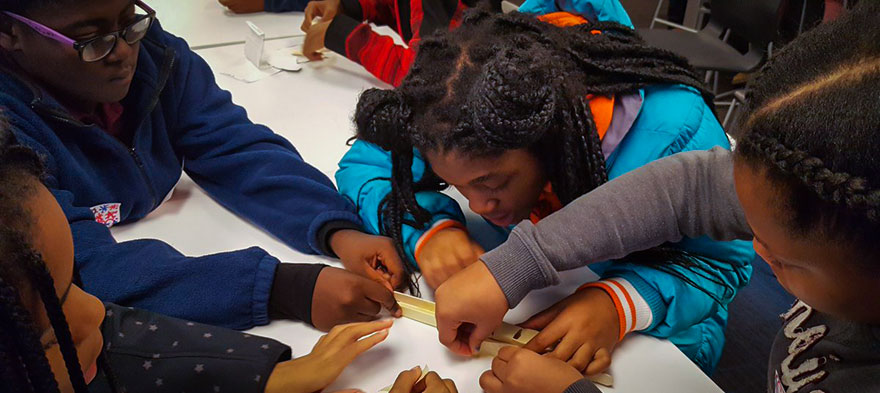
Feb 21, 2017 12:00:00 AM
Jason Coleman is the Co-Founder and Executive Director of Project SYNCERE, an educational not-for-profit organization whose mission is to prepare the minds and create pathways for underrepresented and disadvantaged students to pursue careers in STEM. After graduating from the University of Southern California with a degree in mechanical engineering, he worked in the aerospace industry for three years at BAE SYSTEMS, where he designed and developed flight control systems for military and commercial aircrafts. He was later employed with Motorola Mobility for five years, where he developed the mechanical layouts for the latest cellular phones. During his tenure in corporate America, he noticed the dismal amount of minorities and women in the fields of engineering and decided a change was necessary. In 2008, he co-founded Project SYNCERE in an effort to bring about a change within the STEM fields. As a product of the Chicago Public Schools himself, it was important for Jason to ensure access to quality programs was available to inner-city youth. Project SYNCERE has since served over 11,000 Chicago-area students since its launch and provides programming in more than 30 schools throughout the city, with the goal of create a national organization that reshapes the way engineering is assessed and taught. Project SYNCERE has been recognized for its outstanding work and dedication to youth in the community by organizations such as the Urban League of Chicago, NBCUniversal, N’Digo, Diversity in Action, Black Enterprise and the Chicago Sun-Times, and Jason has been the recipient of numerous awards for his efforts in the community and has spoken on numerous panels about STEM education, as well as serving on the advisory board for the Chicago Children’s Museum.
Few issues in education spark more tension and debate than standardized testing. Are they a tool for equity or a burden on students? A necessary check on school systems or a flawed measure of...
Charter schools are public schools with a purpose. Operating independently from traditional school districts, they're tuition-free, open to all students, and publicly funded—but with more flexibility...
Despite the benefits of a diverse teaching force, prospective teachers of color fall out of our leaky preparation pipeline at every stage: preparation, hiring, induction, and retention. Here’s what...
Ed Post is the flagship website platform of brightbeam, a 501(c3) network of education activists and influencers demanding a better education and a brighter future for every child.
© 2020-2025 brightbeam. All rights reserved.
Leave a Comment